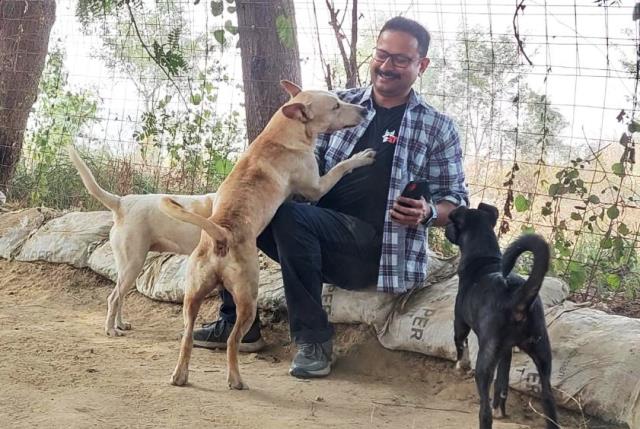Abhishek Anand, co-founder of a welfare NGO called Daan India Foundation, details the challenges before animal lovers in urban parts of the country. His views
As a dog-shelter owner in India, I witness firsthand the complexities surrounding the issue of stray dogs. The debate largely oscillates between viewing stray dogs as a menace and recognizing them as ill-treated animals. Stray dogs, indeed, present a significant challenge due to their growing numbers, which strain resources and often trigger conflicts. However, it’s crucial to understand that the root of this problem lies not with the animals themselves but with systemic failures, particularly the lack of effective implementation of the Animal Birth Control (ABC) Rules of 2001 by local municipal authorities.
The Supreme Court’s ABC Rules were designed to manage and control the stray dog population humanely. Unfortunately, compliance is abysmally low, with an estimated 99% of municipal bodies across India failing to adhere to these guidelines. This negligence leads to overpopulation, which in turn results in increased incidents of dog bites and conflicts between humans and strays. It’s far too easy to label stray dogs as a menace without addressing the core issue of mismanagement by authorities.
In high-rise societies, there is a disconnect between residents and the realities of pet ownership. Many Apartment Owners Associations (AOAs) and Resident Welfare bodies (RWAs) act beyond their legal boundaries, imposing arbitrary rules that make life difficult for pet owners and their dogs. These groups most commonly prohibit pets from using common facilities like lifts, which is not only unfair but also illegal.
The Supreme Court has upheld the right of citizens to feed strays, and the Animal Welfare Board of India has issued guidelines stating that RWAs cannot deny feeding or designate feeding spots without the agreement of feeders. RWAs can face legal action for issuing illegal orders or intimidating residents who feed dogs.
ALSO READ: A Progressive Society Enjoys Life With Dogs, Other Pets
On the flip side, pet owners also have a responsibility to understand and manage their pets appropriately. Many people adopt dogs without fully understanding the breed’s needs and behavioral traits. For instance, breeds like German Shepherd or Beagle require ample space, socialization, and training. Keeping such active dogs confined in small apartments without adequate mental and physical stimulation can lead to behavioral issues. Pet parents must educate themselves about the breeds they adopt and provide proper training and socialization to ensure their pets are well-adjusted and non-aggressive.
Feeding strays is an act of compassion, aimed at reducing hunger-induced aggression and territorial behavior. However, those who feed strays must do so responsibly. Feeding dogs at a specific spot can make them territorial about that area, leading to aggressive behavior towards passersby. Therefore, feeders should choose feeding locations wisely and ensure that these spots do not become contentious zones within communities.
It’s imperative for municipal authorities to take their responsibilities seriously and implement the ABC Rules effectively to control the stray population. Concurrently, communities need to foster a culture of coexistence, where the rights and responsibilities of pet owners, strays, and other residents are balanced. Education and awareness programs can play a significant role in bridging the gap between different stakeholders, promoting understanding, and reducing conflicts.
Ultimately, the issue of stray dogs in India requires a collaborative approach. Municipal authorities must be held accountable for their lapses, pet owners need to be responsible and informed, and community groups should respect legal guidelines while fostering harmony. By working together, we can create an environment where humans and animals coexist peacefully, respecting each other’s rights and needs
(Daan India offers a range of services aimed at providing care and support to vulnerable beings, including animals and humans, as well as communities in need)
For more details visit us: https://lokmarg.com/



